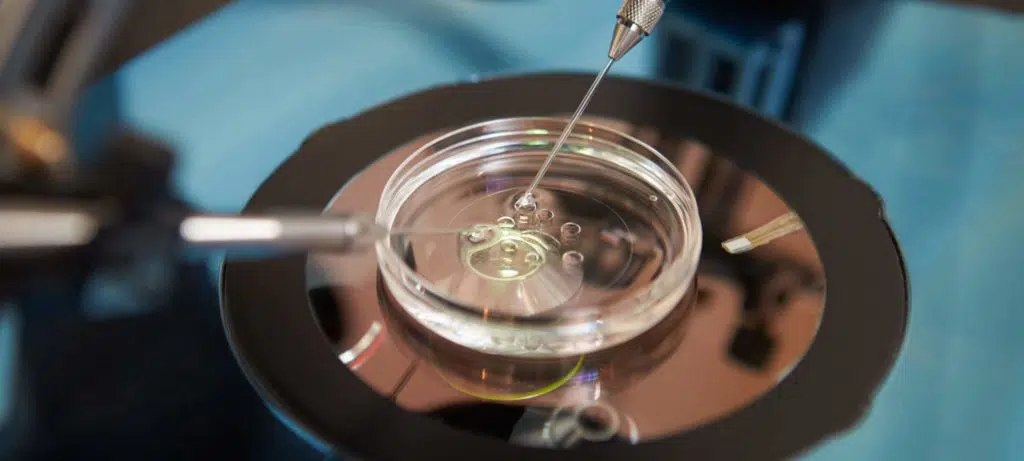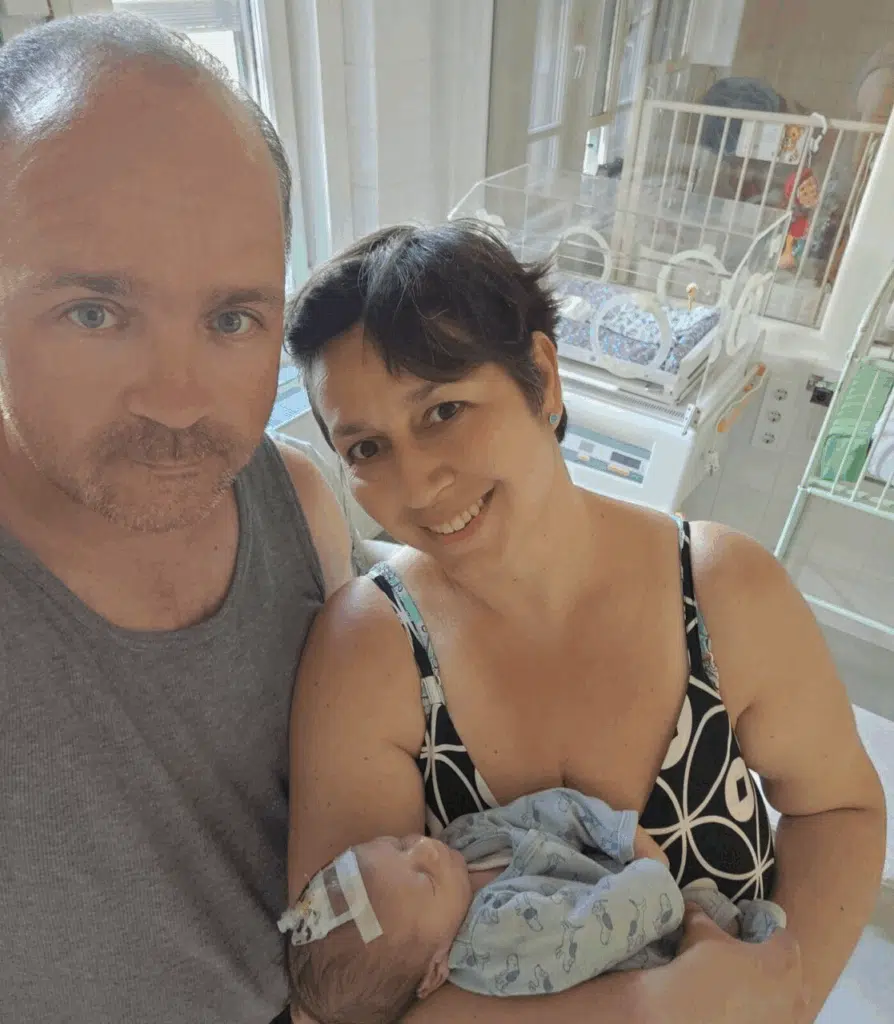Earlier this summer, authorities raided a mansion in Arcadia, California. There they found 21 children, almost all of whom were born through surrogacy.
Police say the case began in May, when a two-month-old infant was hospitalized with severe head injuries. A subsequent search of the couple’s home uncovered 15 children, with six more found in nearby residences.
The legal parents, 38-year-old Silvia Zhang and 65-year-old Guojun Xuan, were arrested on felony child endangerment and neglect charges.
Investigators allege the couple operated an unregulated surrogacy scheme, employing numerous surrogate mothers, many of whom were unaware of the full scope of the operation.
“It’s horrific, it’s disturbing, it’s damaging emotionally,” said [4] Kayla Elliot, one of the surrogate mothers hired by Zhang and Xuan. Elliot believed that she was helping an infertile couple have a child. In reality, she was conned by a couple with deep connections [5] to organized crime.
Officials say Zhang was listed as the mother on multiple birth certificates, and the pair may have been running what one investigator described as a “baby mill” under the guise of private surrogacy.
Police also said that evidence suggested that the nanny, 56-year-old Chunmei Li, had verbally and physically abused the children. Video footage reportedly shows her violently shaking one infant.
All 21 children, most between the ages of one and three, are now in protective custody with Los Angeles County child services. Meanwhile, federal and state investigators, including the FBI, are examining whether the couple’s activities violated surrogacy laws, human trafficking statutes, or financial regulations.
Common Abuse
As disturbing as this story is, it only scratches the surface of the abuses being perpetrated the world over by the surrogacy industry.
And I use the term “industry” advisedly. If you were to listen to many pro-surrogacy advocates, you would think that surrogacy is always, or nearly always, a matter of charity and compassion. Surrogacy is sold under the premise that surrogate mothers are almost always kindly women seeking to aid infertile couples to achieve their dream of becoming parents in the face of heartbreaking infertility.
In reality, surrogate mothers are often vulnerable women from impoverished circumstances, who are so desperate that they will undergo the hardships and humiliations involved in selling their bodies as incubators, “carriers” to make a living.

Surrogacy agencies are often run by unscrupulous operators whose overriding interest is snagging lucrative agreements with foreign “buyers,” and minimizing costs so as to maximize profits. And while the “parents” who pay the surrogate to carry their child are sometimes well-intentioned couples suffering from infertility, in other cases they are same-sex couples, single individuals with questionable motives, or shallow women who simply wish to outsource the difficult aspects of pregnancy onto a third party.
Kallie Fell, executive director of the nonprofit Center for Bioethics & Culture Network, told [4] NBC News that experiences like that of Elliott are not uncommon. She said she has spoken with “hundreds” of surrogate mothers who shared with her (in the words of NBC News) “nightmare scenarios.”
“There’s so many ways these kinds of things can go sideways, and no amount of law will protect a woman or child, because surrogate pregnancies are high-risk by nature,” she said.
Exploitation of Vulnerable Women Worldwide
Many of the worst stories of abuses involving surrogacy come from the developing world, or jurisdictions that are generally known for lax regulations.
In the wake of Russia’s invasion of Ukraine, for example, the massive surrogacy industry in Ukraine received global attention. With Russian tanks bearing down on Kiev, surrogacy agencies were sent into a panic mode, as they sought ways to ensure that children born to surrogates were able to be transferred to their intended parents.
That publicity shone a light on the murky world of commercialized surrogacy, in which women sell the use of their bodies for 9 months, and in which the patchwork legal framework can leave the surrogate mothers and their children in legal limbo.
However, as the California story illustrates, it would be a mistake to think that, just because the United States is a wealthy first-world nation that has at least put up a pretense of carefully regulating surrogacy, similar abuses don’t occur here.
In fact, even when surrogacy and artificial reproductive technologies (ARTs) work exactly as intended (though IVF and surrogacy are always illicit, see Donum vitae [6], Catechism of the Catholic Church [7], nos. 2376-79), they often take us into strange worlds that test our fundamental ethical instincts.
Moral Confusion of Love
Take, for instance, the case of MaryBeth Lewis, which recently received enormous media attention [8].
Lewis is 68 years old. In her twenties she married a pilot and had six daughters with him. However, she had a deep desire to continue having children. In her late 40s, she began using in vitro fertilization (IVF) to get pregnant. Ultimately, by means of IVF she gave birth to her 13th child, when she was 62 years old.
Here, we are already far into the world of science fiction, with an advanced-middle-aged woman giving birth to children at a time in her life when she should be becoming a grandmother, and when the likelihood of her being able to live to see her children grow up is much diminished.
However, Lewis wasn’t done. She subsequently went to a surrogacy agency and contracted with a surrogate to carry twins for her. However, in order to accomplish this, she had to deceive the agency, regulators, and her husband.
When Lewis went to the hospital to collect the twins, she was told that they were being held in state custody. She has since spent $500,000 trying to retrieve the children, who not only were not carried by Lewis, but bear no biological relationship to Lewis or her husband.
So, whose children are these? Lewis’? The sperm donor’s? The egg donor’s? The surrogate mother? Who on earth is to say? How can anyone decide? Once again, the natural order of things has been so drastically subverted that it’s impossible to make heads or tales of the case.
The only thing we can say for sure, is that those poor children, whose rights were violated, should never have found themselves in this situation.
The Times’ report on Lewis’ situation portrays her motives in a positive light. “MaryBeth loves children. She always has,” they write. And indeed, in so many respects Lewis seems to be a tender-hearted, if deeply hurt individual.
Conceived in Love Not in a Lab
However, this is the inherent catch-22 of technologies like IVF and surrogacy (both morally unacceptable practices). There is no question that many people who resort to IVF or surrogacy are motivated by good, even commendable, desires to bring life into the world. And yet, there is clearly an inherent logic to certain technologies that cannot be overridden simply by having good intentions – “An evil action cannot be justified by reference to a good intention. The end does not justify the means” (Catechism of the Catholic Church [9], no. 1759; see also nos. 1755-1758).
IVF and surrogacy yank sacred matters out of their natural, sacred context, placing them firmly within the realm of science and technology. What ought to occur within the loving embrace of a husband and wife, becomes subject to the harsh glare of the laboratory, and in the process loses much of its sacredness.
To be clear, the resulting child is always sacred, having inherent human dignity. A child is in no way diminished by the means of his or her conception. However, this does not mean that the method is without consequences.
The Gift of Life
One of the tragic details in The Times’ profile of Lewis is that she seems to be a practicing, and indeed devout, Catholic. And yet, somehow, she seems not to have internalized the Church’s wisdom on this topic.
One of Lewis’ friends, Mona Meagher, wondered: “If she’s that staunch of a Catholic, then if God was done having her have babies naturally, why not stop, rather than go this route of fertilizing?”
It is a very good question.
This is why the Catholic Church teaches that there is no unilateral “right” to have a child by any means. Any such view is fatally one-sided, ignoring the “rights” that a child has (see Catechism of the Catholic Church [10], no. 2378). As the Vatican document Donum vitae [6] puts it, in speaking about IVF, “These procedures are contrary to the human dignity proper to the embryo, and at the same time they are contrary to the right of every person to be conceived and to be born within marriage and from marriage” (§ 6).

Unfortunately, ignorance or outright bullheadedness on this issue is widespread not only within the broader culture, but also within the Church. Far too many Catholics have never heard the Church’s teachings on IVF, or if they have, pay them no heed. The Church states clearly that IVF is “morally unacceptable” because it separates the marriage act from procreation and establishes “the domination of technology” over human life (The Catechism of the Catholic Church [11], no. 2377; see also Ethical and Religious Directives for Catholic Health Care Services [12], nos. 38-43).
Polices Over People
The consequences of this ignorance and opposition are significant. A few weeks ago, the Trump administration announced [13] that it would be following through on campaign promises to make IVF more affordable and accessible to Americans. Ostensibly, the purpose behind this policy is to aid the U.S. in addressing the growing fertility crisis, with women having fewer and fewer children with every passing year.
Unfortunately, expanding access to IVF is a totally wrong-headed response to this problem. I was very pleased that Bishop Michael Burbidge, the bishop of the Diocese of Arlington in Virginia (the diocese where Human Life International is situated) put out an excellent statement [14] on the issue.
“‘Expanding access’ to IVF as described in this executive order is likely to unjustly promote IVF in a way that will result in the abandonment or death of millions of embryonic human persons,” the bishop said, “involve all taxpayers with a serious moral injustice, provide federal subsidies for already lucrative IVF businesses, and ignore the risks to parents and children of America’s broadly unregulated IVF industry.”
Life Is Precious
CatholicVote President Kelsey Reinhardt also put out an excellent statement [15], compassionately but clearly addressing the fraught issue of IVF. “As Catholics who believe every human life begins at conception and deserves protection, we are deeply disappointed by the White House’s decision to promote IVF, a practice that routinely destroys or discards embryonic children in the name of ‘treatment,’” she said. “The longing for a child is holy, but a child can never be the product of a laboratory process that treats life as disposable.”
Reinhardt urged the Trump administration to invest in the kind of holistic healthcare that can in many cases heal the root causes of infertility (i.e., Restorative Reproductive Medicine). Unfortunately, such holistic healthcare is often overlooked by the healthcare system, in part because it is often much cheaper than costly IVF procedures, which produce massive profits for IVF providers. Healing, on the other hand, is far less lucrative.
“America should invest in medicine that heals, not in an industry that creates life only to discard it,” said Reinhardt. “True compassion respects both the dignity of the parents and the lives of their unborn children, every single one of them.”
Ban Surrogacy
I am in the very unusual position, in ending this column, of stating that every nation on earth must listen to the United Nations report on surrogacy.
The UN is hardly a bastion of conservative or pro-life values. And yet, even its Special Rapporteur on violence against women and girls, Reem Alsalem, could not contain her horror [16] in the face of what the surrogacy industry is doing to women and children.

“The practice of surrogacy is characterized by exploitation and violence against women and children, including girls,” she wrote in the recent report. “It reinforces patriarchal norms by commodifying and objectifying women’s bodies and exposing surrogate mothers and children to serious human rights violations.”
Alsalem minces no words in the conclusion to her report. States that are members of the United Nations, she says, should “take steps towards eradicating surrogacy in all its forms.”
I couldn’t put it better myself. Women deserve this. Children deserve this.